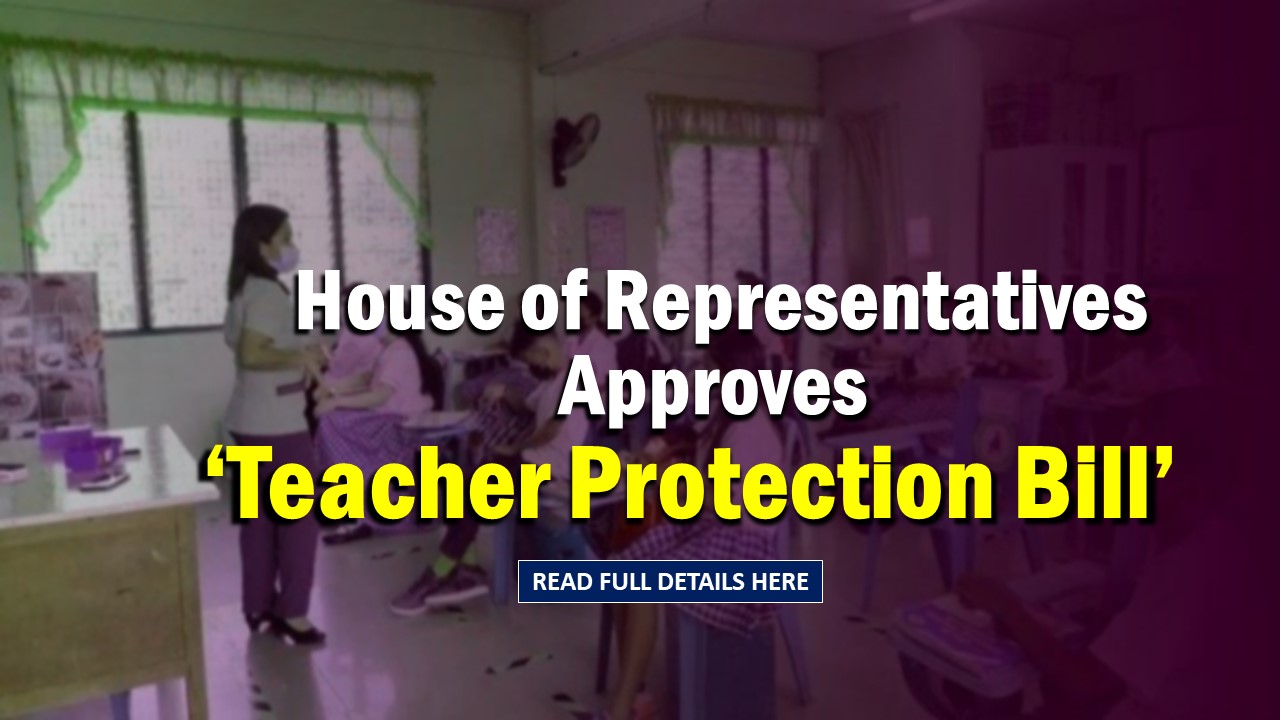
A measure that attempts to protect teachers against unjustified accusations of child abuse by outlining the activities that comprise their “discipline authority” in the classroom has been passed by the House of Representatives on Tuesday. The law, which combines three separate bills (House Bills 364,549, and 6940), aims to create support systems for educators in regards to discipline and classroom management.
The proposed law aims to alter Republic Act 7610, generally known as the Child Abuse Law, specifically in regards to actions taken by educators who followed the Department of Education’s (DepEd) disciplinary policies and procedures. The goal is to prevent such behaviors from being automatically labeled as child abuse.
When the Makabayan bloc filed House Bill 549, they underlined the need to safeguard teachers while also emphasizing how crucial it is to safeguard children.
The combined measure seeks to amend a provision of the Child Abuse Law that might label any forms of student reprimand as child abuse, putting instructors in danger since they lack the legal protections necessary to defend themselves.Rep. Roman Romulo, the committee chair, worked with state counsel from the Department of Justice (DOJ), Jennelyn Bilocura, to improve the bill’s language and exempt teachers’ disciplinary measures from the reach of the Child Abuse Law in order to address this problem. Instead of exempting teachers directly, the objective is to define their disciplinary authority.
Romulo acknowledged the significance of upholding criminal consequences for those who abuse pupils, but he also emphasized the necessity of preventing the abuse of the Child Abuse Law to punish educators who implement discipline in the classroom.
Additionally, the law contains clauses allowing teachers accused of child abuse to choose to get free legal representation from the Public Attorney’s Office and the DepEd.
The bill was unanimously passed, subject to wording changes, but a DepEd representative advised against categorizing all forms of classroom discipline as child abuse and exploitation because this could be unduly broad. Judges or courts are normally responsible for determining whether a behavior qualifies as child abuse, according to Tara Rama, head of the DepEd Education Program Management.
Romulo reassured that the new version of the measure, which aims to find a balance between protecting teachers and safeguarding children, will meet these concerns.
Teachers are not allowed to use corporal punishment, which includes any disciplinary action including physical, humiliating, or degrading treatment, in accordance with the DepEd’s Child Protection Policy. Additionally, as stated in its Child Protection stance (DepEd Order No. 40,s. 2012), the department maintains a “zero tolerance” stance towards child abuse, exploitation, violence, discrimination, bullying, and other forms of abuse.
